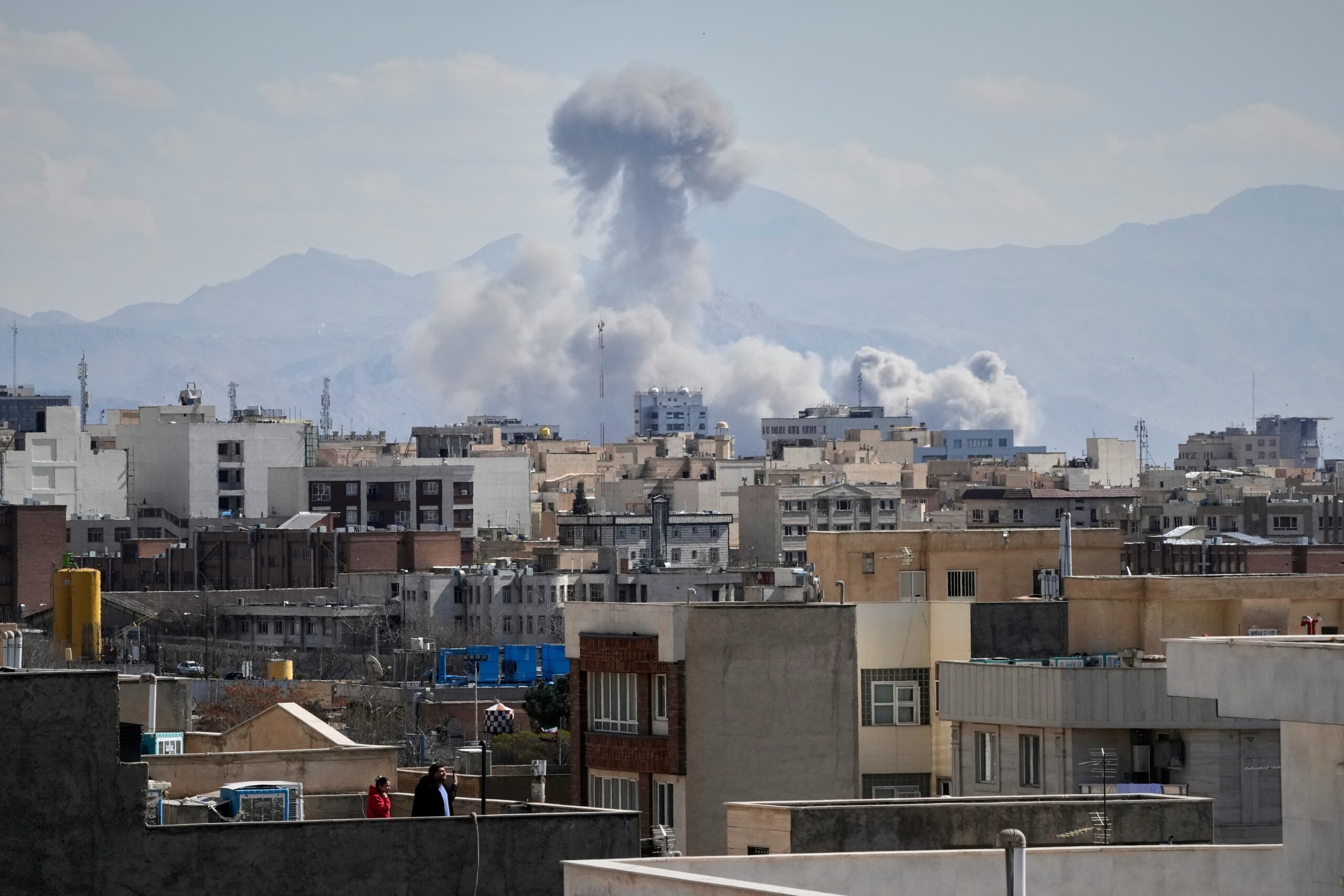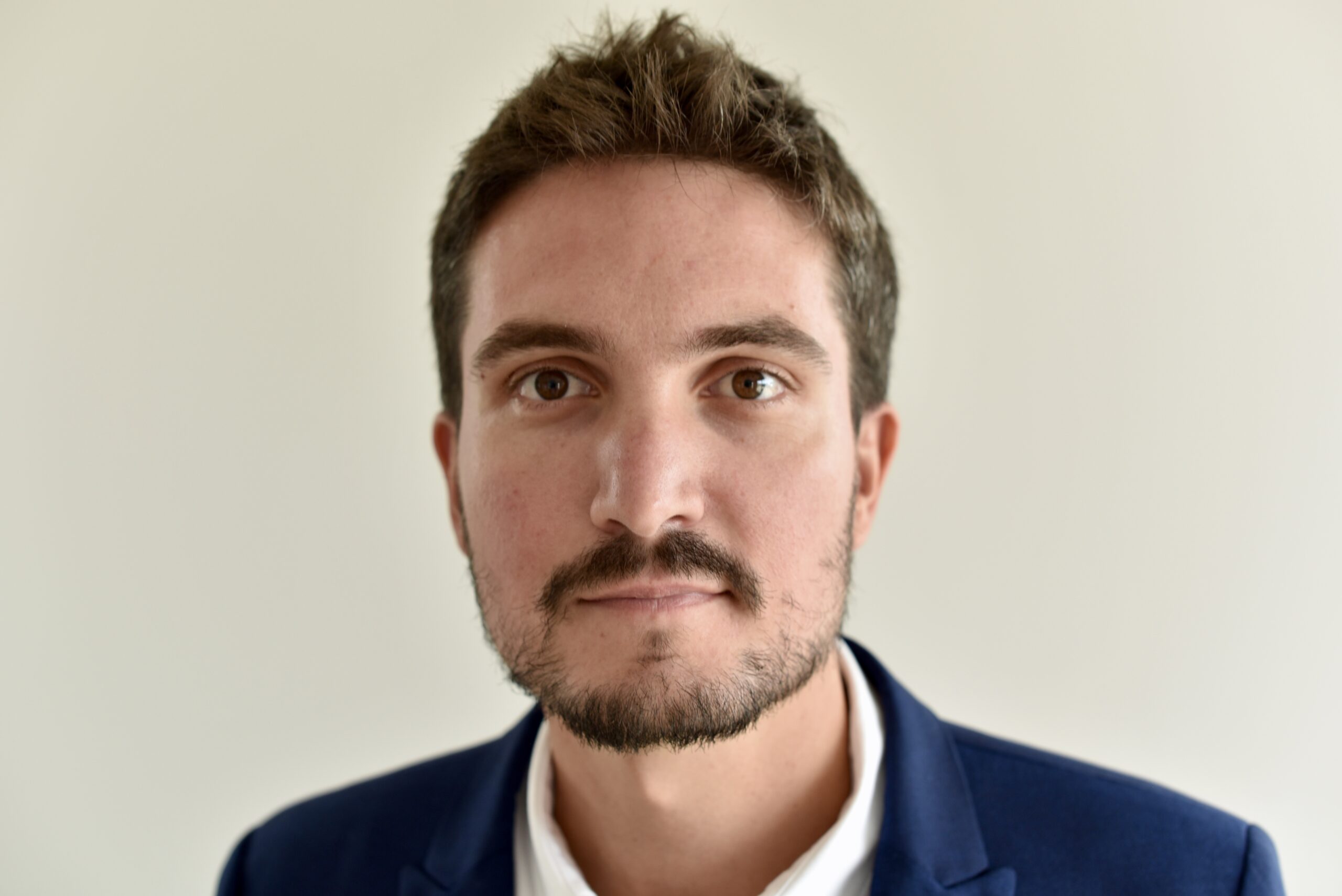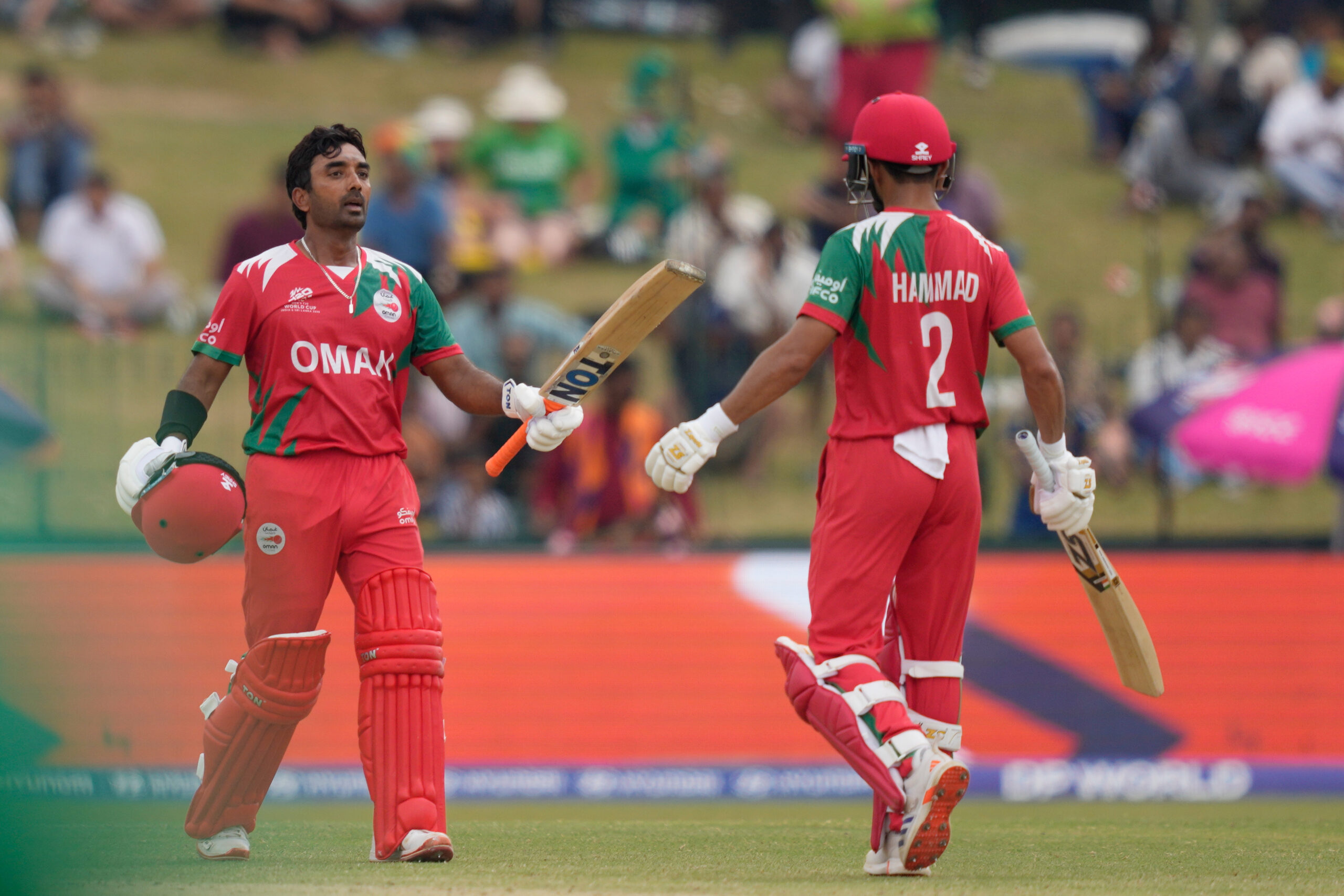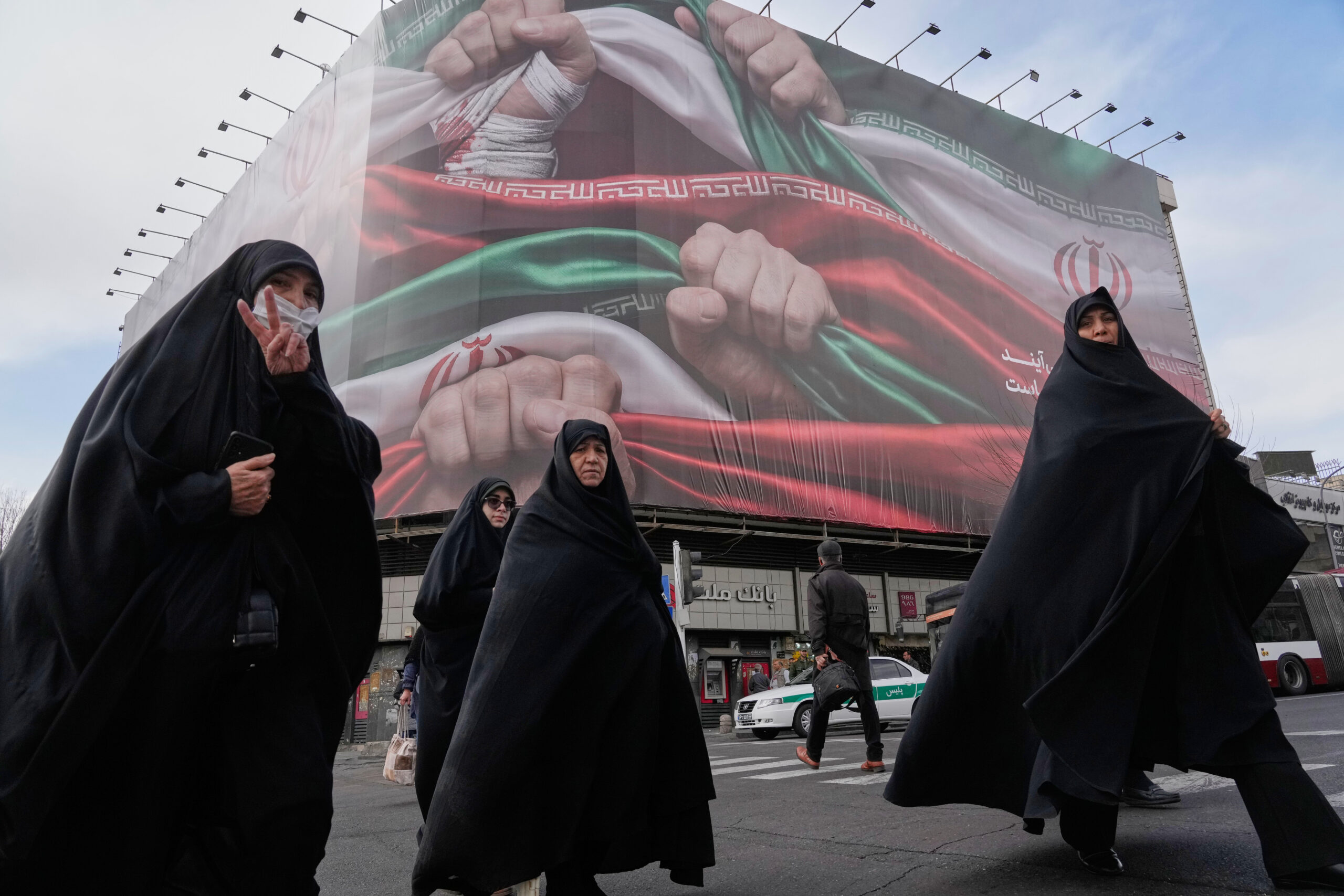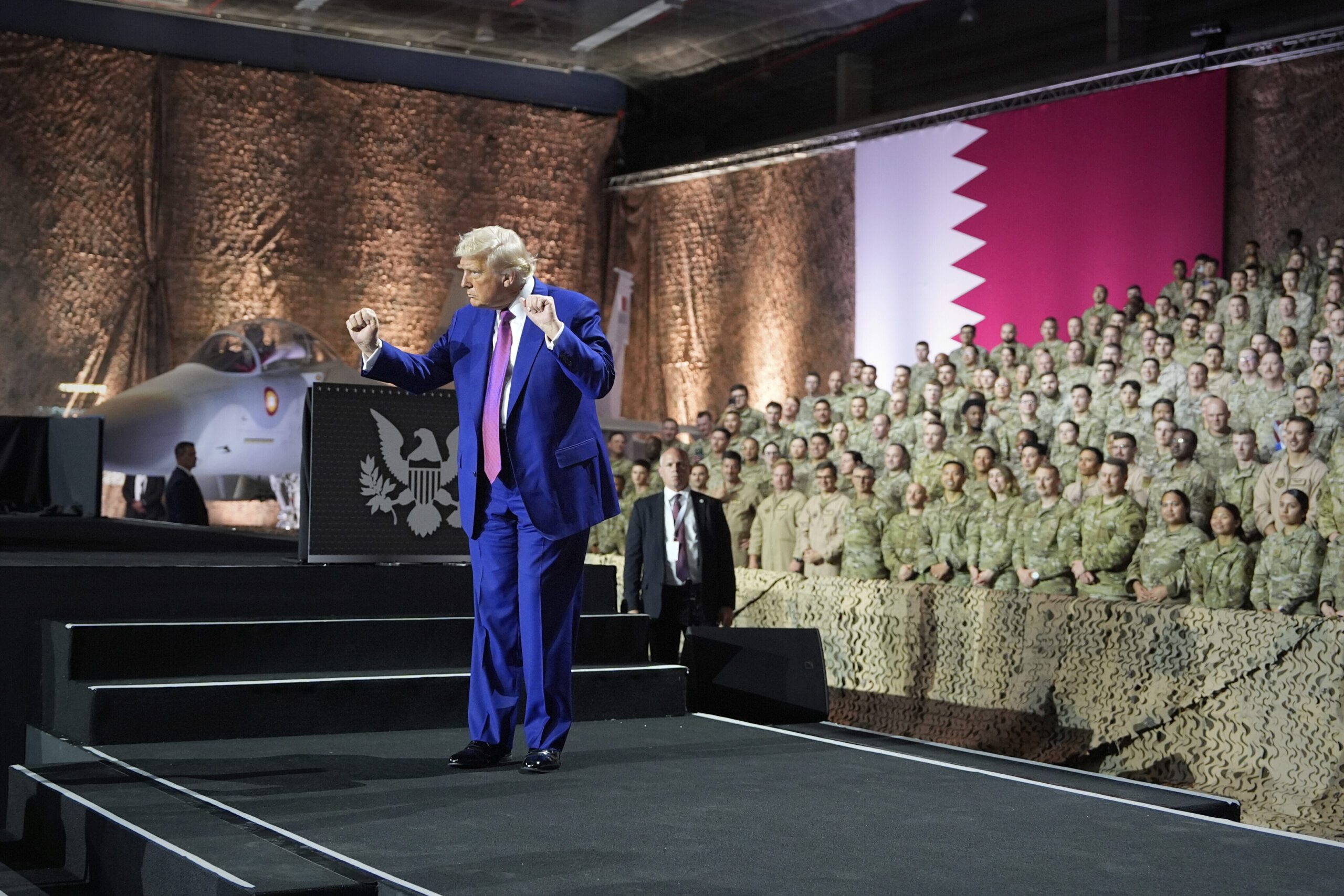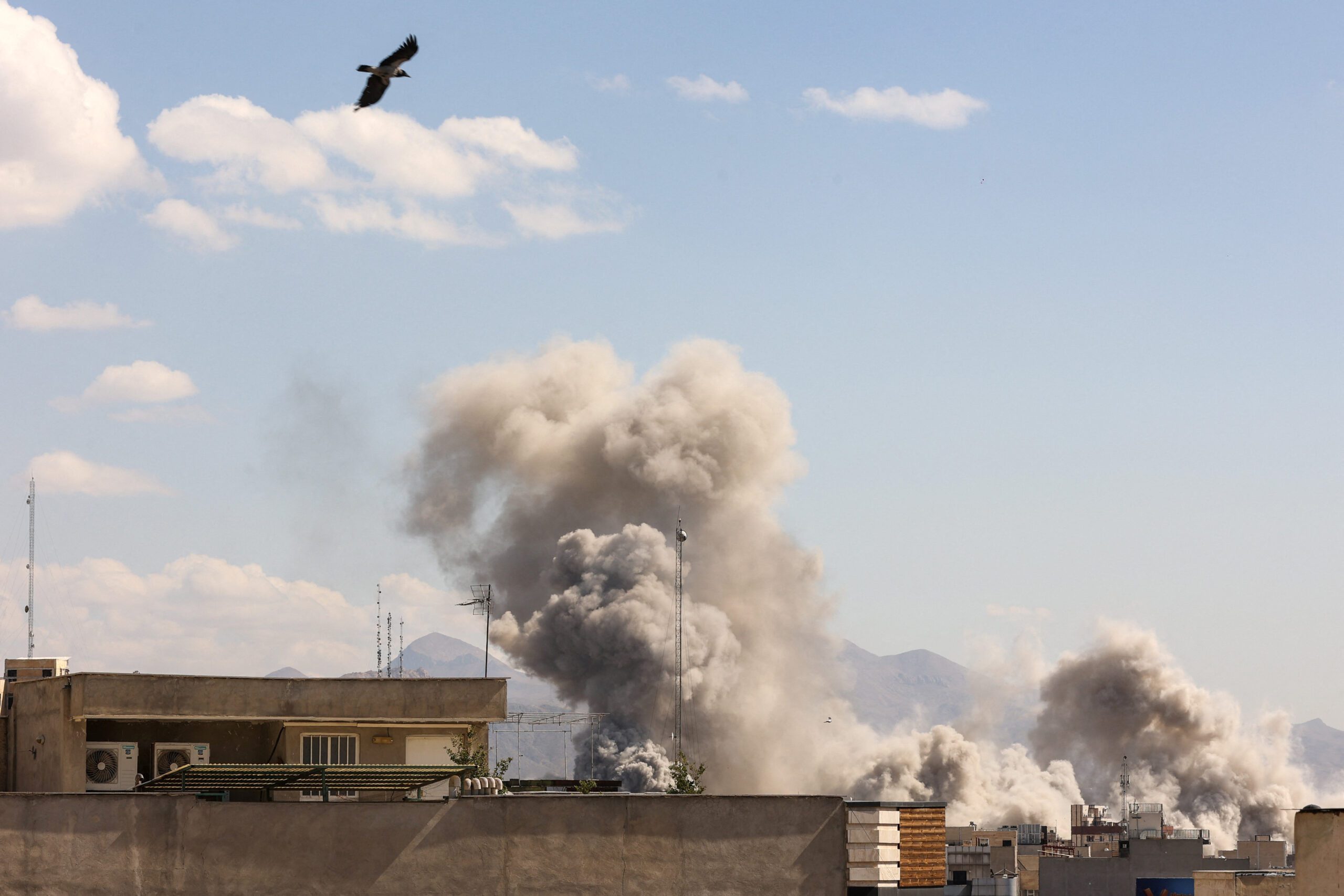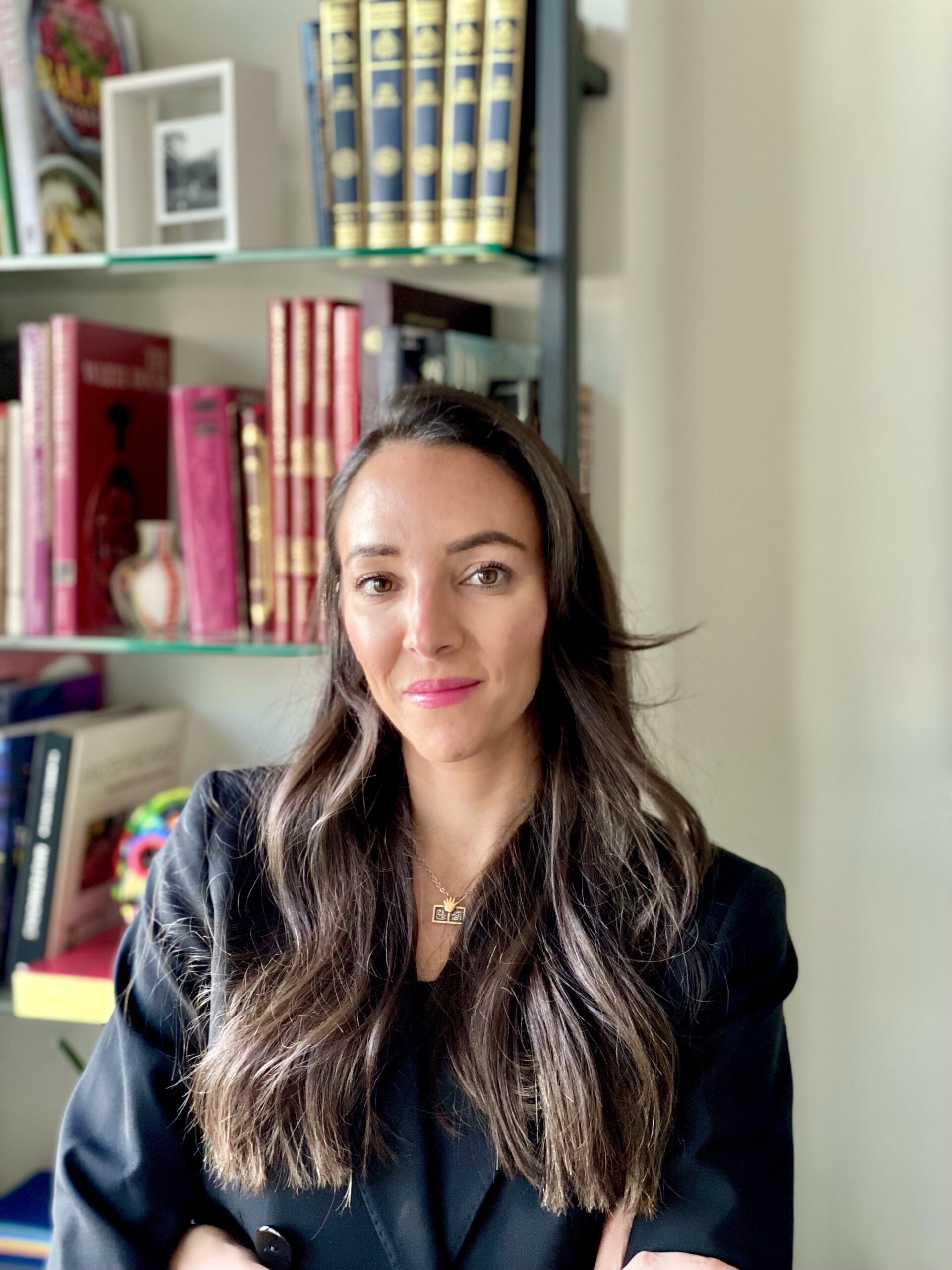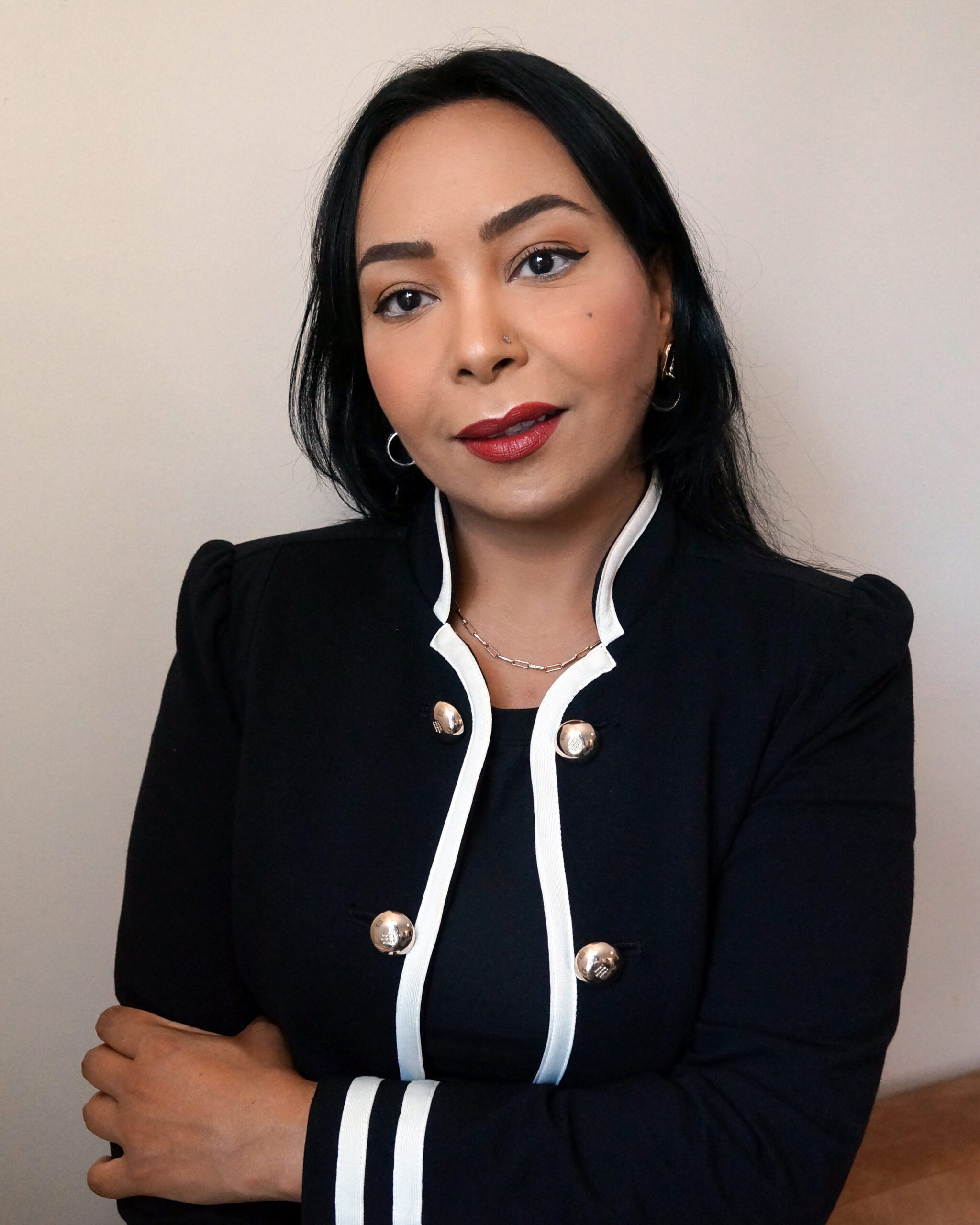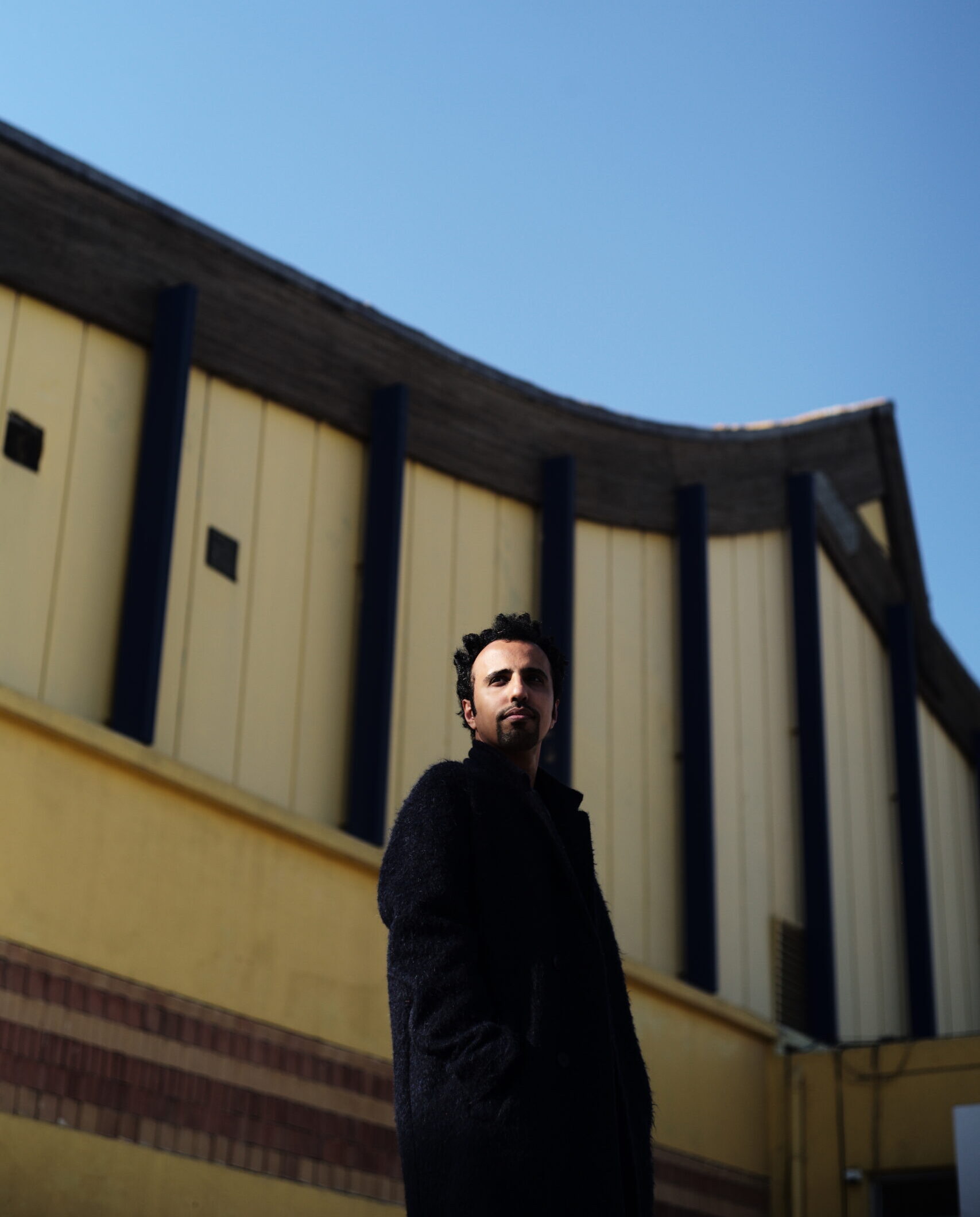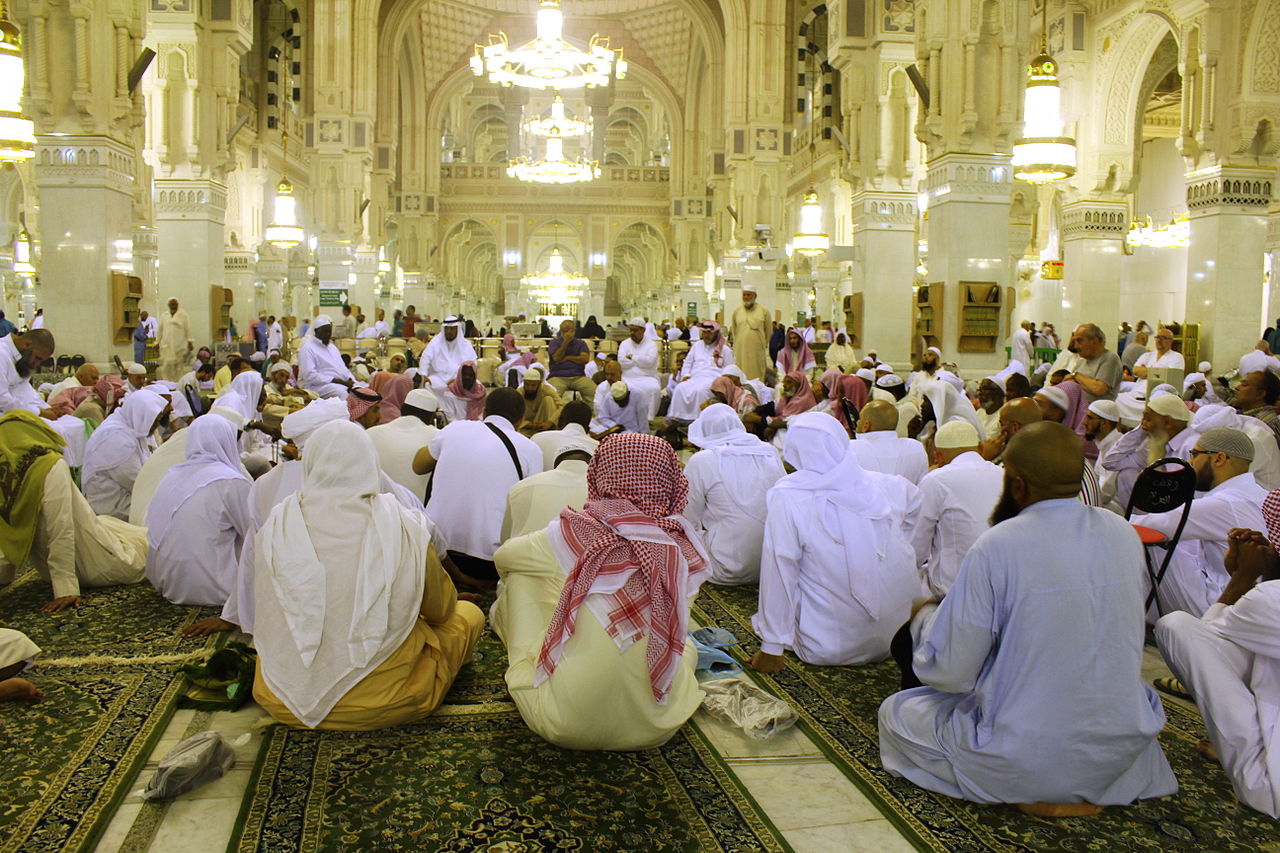Aug 26, 2016
Gulf Islamists Praise Erdogan Victory, Prophesy Revival of the Ummah
The Turkish government’s defeat of an attempted military coup last month has captivated Islamists across the Middle East, who found relief, and a bit of redemption, in the popular mobilization against the rebellious officers. The government, led by President Recep Tayyip Erdogan, had already earned Islamist praise for the support it has offered to popular...
10 min read
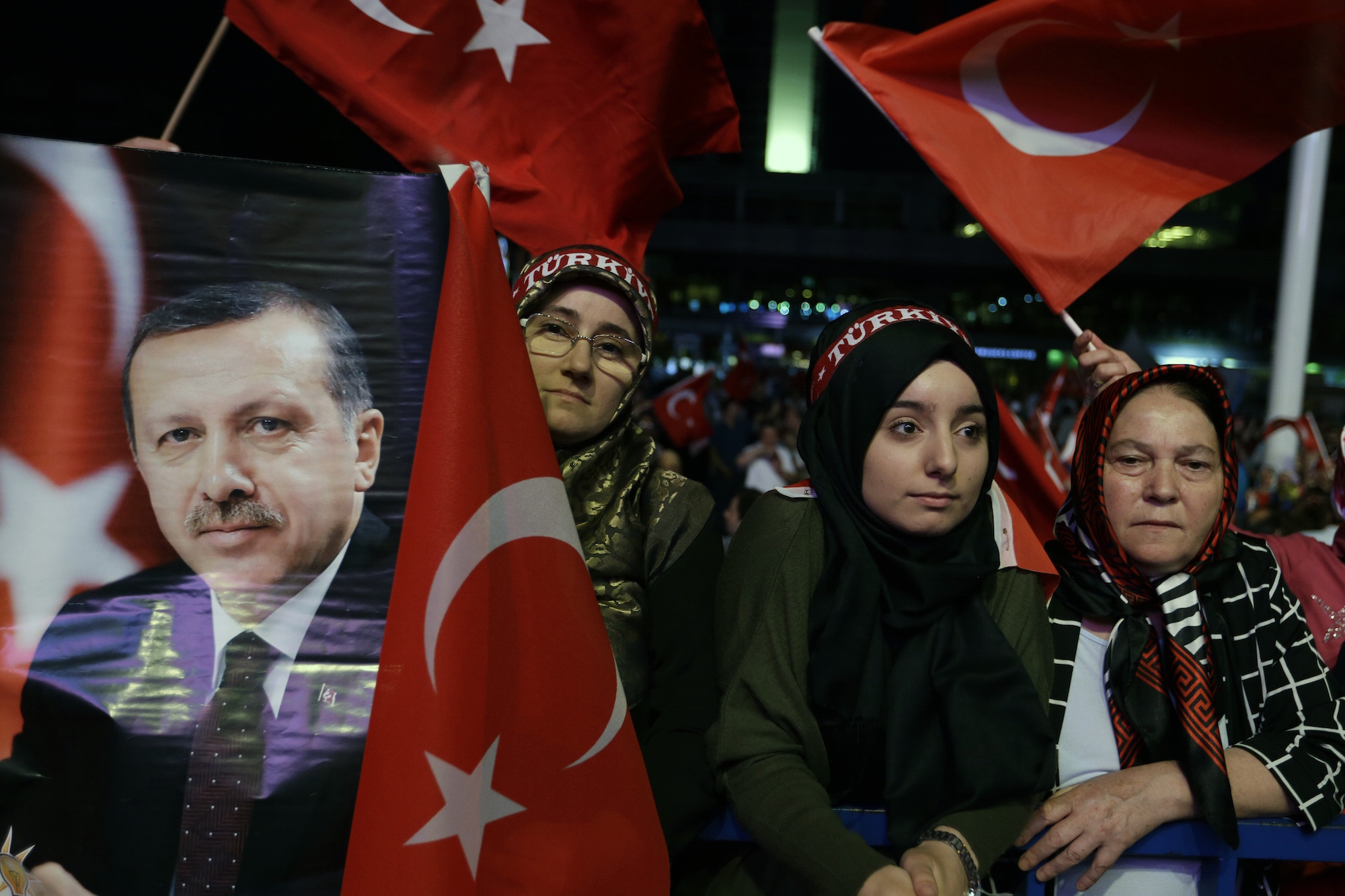
The Turkish government’s defeat of an attempted military coup last month has captivated Islamists across the Middle East, who found relief, and a bit of redemption, in the popular mobilization against the rebellious officers. The government, led by President Recep Tayyip Erdogan, had already earned Islamist praise for the support it has offered to popular uprisings in Egypt and Syria and the refuge it has extended to exiled Muslim Brotherhood activists and Syrian refugees. Now many Islamists, both Muslim Brotherhood and Salafi, are elevating Erdogan beyond mere national leadership, portraying him at the vanguard of the defense of a newly revived Islamic community, or Ummah.
The Brotherhood and Egypt Come to the Fore
The outcome of the Turkish coup attempt was high stakes for the Muslim Brotherhood, which lost its leadership position and historical home in Egypt with the military overthrow of the popularly elected government, led by President Mohamed Morsi, in 2013. The toppling of the like-minded Justice and Development Party (AKP) at the hands of the Turkish military would have eliminated the remaining safe haven of Brotherhood officials and activists. Social media postings by Brotherhood ideologues, members, and sympathizers across the Gulf region expressed these concerns.
While exiled Egyptian Muslim Brotherhood affiliates and Syrians reportedly took to the streets alongside the Turkish people in defense of the Erdogan-led government, their counterparts in the Gulf flooded the Twittersphere denouncing the coup, contrasting it with Egypt’s successful one, and touting the services Erdogan and the AKP have rendered to Islam and the Ummah.
Sheikh Yusuf al-Qaradawi, the head of the Doha-based International Union of Muslim Scholars, was among the first to decry the coup attempt, declaring it doomed to failure, and praising Turkish generosity in support of the weak and oppressed in reference to Syrian refugees and Brotherhood exiles. He celebrated when the coup began to falter, rallying the Turkish people to take to the street to support “legitimate” government, and urging them to continue protesting the putsch until conditions normalize.
Ali al-Qaradaghi, the secretary general of the International Union for Muslim Scholars, echoed his support for Erdogan, condemning the coup attempt as a sinful revolt against a legitimate democratically elected ruler. Comparing Turkey and Egypt, he tweeted contrasting images of the corpses of Egyptian citizens killed by the military with victorious Turkish citizens subduing rebellious officers. He also hit back against the Egyptian media that rushed to support the coup bid.
The contrasting outcome with Egypt provided a glimmer of hope for downtrodden Muslim Brotherhood activists, and a model of how to send the military back to the barracks. After the coup’s failure, the Kuwaiti Brotherhood leader Tareq al-Suwaidan called for God to purge the Ummah of military rule. He viewed the thwarting of the putsch as “an exquisite example of the victory of the people over the military,” and reveled in the opportunity for Turkey to purge its enemies, proclaiming “The bullet that doesn’t kill you makes you stronger.”
Salafists and Conspiracy Theories
The support for the embattled AKP-led government was not limited to the Muslim Brotherhood, but included sometimes rival Salafi activists and preachers from across the Gulf. The Salafi online commentary was full of conspiracy theories, and ominous foreboding of the war waged by the non-Muslim West on Islam. In the words of the Salafi cleric Abdul-Rahman al-Barrak “Those who celebrated the coup in Turkey are either apostates, ignorant, or following their own wicked whims.”
Similar impressions were reiterated by other Saudi televangelists and independent religious scholars. Mohamed al-Arefe tweeted his prayers for the security of Turkey and celebrated its “victory” over the coup. He also drew attention to the “New Crusaders” on Twitter who celebrated the coup attempt as an opportunity to “retake Constantinople and the Hagia Sophia.” Salman al-Odah also celebrated the failure of the coup, arguing that it was Turkey’s pride in its Muslim identity that drove deviant forces to conspire against it. He urged others to realize Muslim solidarity, if only through words of truth and encouragement.
Even those Salafists known for their lack of sympathy for the Muslim Brotherhood joined in the praise of Turkey. The Kuwaiti cleric and Quran reciter Mishari al-Afasy, who opposes the Brotherhood, tweeted expressing his joy that the “Alawite-orchestrated coup” had come to no avail. After being accused in social media of supporting Egypt’s coup, he replied in a widely shared tweet that his disagreement with the Brotherhood does not mean that he condones killing its members, and that religion and justice oblige us to delight in the coup’s failure.
Syria Looms Large
The fate of Syria appeared prominently in the post-coup online commentary, with Islamists and Salafists worrying about the setback a successful putsch in Turkey would represent for Syria’s Islamist opposition. Jamaan Al-Herbesh of Kuwait’s Muslim Brotherhood-backed Islamic Constitutional Movement tweeted his hope that the coup attempt would fail and that Turkey could continue to be a safe haven for Levantines. The Salafi cleric Adnan al-Arour drew upon Islamic history, comparing Erdogan to Abyssinia’s historic king Negus who sheltered the early Muslims who left Mecca due to persecution. The islamqa.info website founder Muhammad Salih al-Munajjid characterized massacres in Idlib and Aleppo in Syria as an act of retaliation for the failed coup and as an attempt to frustrate Syrians and weaken the morale of Muslims at large.
The head of Kuwait’s Ummah Party, Hakim al-Mutairi, drew upon Quranic commentary to argue that Erdogan’s victory over coup plotters would redound to the benefit of the Syrian rebels, the redemption of Constantinople presaging another victory in the Levant, especially in Aleppo where the various factions of the Syrian opposition are coalescing for a pivotal battle against the government of Syrian President Bashar al-Assad and its supporters. He further opined that both Syria and Turkey face Western plots to dismember them along religious and ethnic lines.
A Revival of the Ummah
The Islamist narrative emerging from the thwarted coup portrayed Turkey’s victory as something shared by the whole Muslim community: a landmark achievement in the revival of the Ummah, especially in its confrontation with its enemies in the West. As stated by Munajjid, the attempted coup united the Muslim community, reminding Muslims that they are all on the same lifeboat and thus have a shared destiny.
The most developed rendering of this argument was presented by the Ummah Party’s Hakim al-Mutairi. He characterized the coup’s defeat as a victory for the Ummah, and the survival of the regime in Turkey as a turning point in liberation from the hegemony of Western forces: “After 100 years of falling under Western influence in the year 1918, Turkey has been redeemed, it has been liberated.” Others close to Qaradawi, such as Mauritanian professor of Islamic ethics at the Qatar Foundation, Mohamed Mukhtar al-Shinqiti, accused the West, especially the United States, of orchestrating the coup.
This emerging narrative positioned Turkey as the face of the Muslim Ummah, with Erdogan at its vanguard. Intimations of this shift appeared in April at the “Thank You, Turkey” conference, which gathered Gulf Islamists, Egyptian Muslim Brotherhood members, and Hamas officials in Istanbul to express gratitude for Turkey’s support of the Arab Spring revolutions. In the inaugural speech, Qaradawi thanked Turkey on behalf of Saudi Arabia and Qatar, describing Erdogan as an invincible “sultan” who has become the sentinel of the Ummah who dared to defy tyrants. At the time, Turkish officials balked at these politically loaded slogans. In a televised interview, a senior advisor to Erdogan, Ömer Faruk Korkmaz, pushed back against these inflated expectations, stating “Whomever from our Arab brethren wants to help Turkey and serve its interests, they should not transgress the policies of the [AKP]. There exist discourses and slogans circulated by our Arab brethren that give Turkey an oversized weight. This frightens our Western allies.” He added that these voices have “caused democracy to fail in their country and we do not want them to ruin our democratic project.”
After the coup, however, Turkey and Erdogan appeared to see the value in this Islamic solidarity to support the government in reasserting its grip on power domestically and touting its regional leadership. The New York Times reported that, after surmounting the coup attempt, Erdogan flashed the four-fingered Rabaa salute in a show of solidarity with the Muslim Brotherhood. Similar comments surfaced in the post-coup “Democracy and Martyrs’ Rally” held in Istanbul and attended by more than a million Turks, where the banners read “You are a gift from God, Erdogan” and “Order us to die and we will do it.”
Rallying Islamist support can increase Turkey’s regional clout, but it can also draw Turkey deeper into regional commitments, such as the Syrian imbroglio, that have harmed its internal stability. In a time of mounting extremism and political tumult, uneasy lies the head that wears the crown of “Caliph.”
The views represented herein are the author's or speaker's own and do not necessarily reflect the views of AGSI, its staff, or its board of directors.






